Internews, with support from the Sabin Vaccine Institute, between June and July 2023 provided media fellowships to encourage journalists from India, Nepal, Pakistan, Bangladesh, Sri Lanka, and Myanmar to communicate more effectively about COVID-19 vaccinations and also provide accurate information on the effectiveness of HPV vaccines in preventing cervical cancer. In their reporting on HPV vaccines, journalists were encouraged to include diverse perspectives, including those of medical experts, public health officials, and those who have received the HPV vaccine. This can help provide a more complete picture of the issue – including information on the prevalence of cervical cancer and the importance of prevention through vaccination – and help the public make informed decisions. Two Sabin fellowships supported HPV reporting. It is our hope that these stories will help generate evidence for advocacy in the fields of medicine and will highlight public health priorities at the grassroots level.
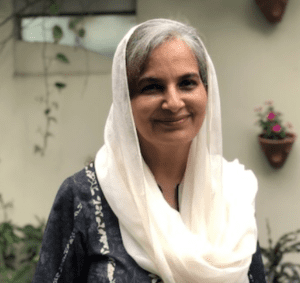
In Pakistan, an estimated 73.8 million women over the age of 15 are at risk of developing cervical cancer caused by the human papillomavirus (HPV). In this story, Inter Press Service reporter Zofeen Ebrahim (@zofeen28) meets cancer survivor Afshan Bhurgri (photo) and speaks with immunization experts to discuss ways of preventing women from dying of cancer, which is the only one that can be prevented through a vaccine. Read full story.
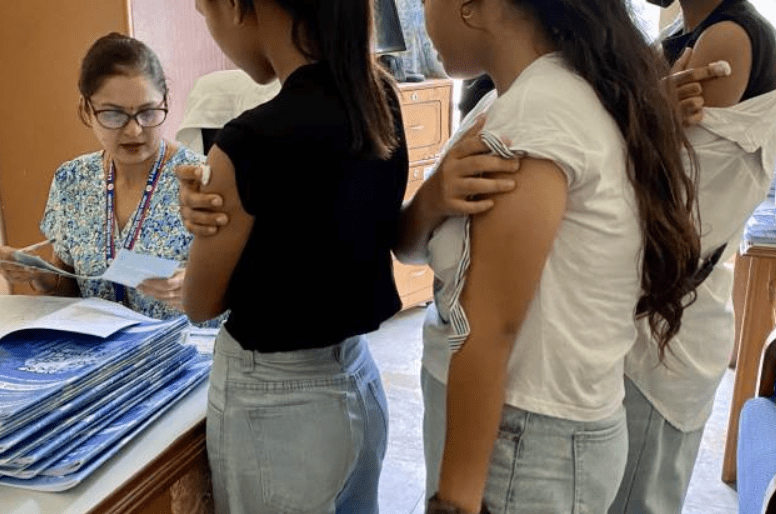
In Nepal, cervical cancer kills about 1,500 women each year. The demand for the HPV vaccine is high compared to the supply, as evidenced by a vaccination campaign in the city of Bharatpur in southern Nepal. The good news is that a national campaign may soon be underway with support from the GAVI Vaccine Alliance as reported by Marty Logan (IG profile @theseenscene) for Inter Press Service. Read more.
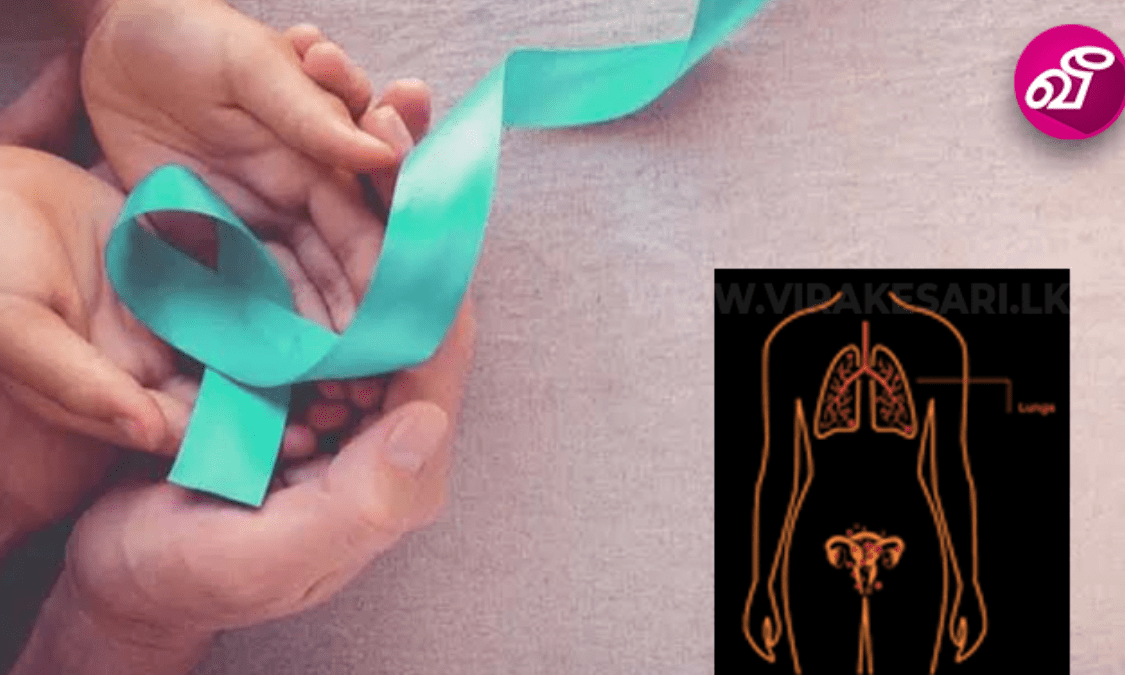
Cervical cancer is the most common cancer in Sri Lanka. According to estimates, 7% of all newly diagnosed cancers among women, are cervical cancers. Despite the rollout of the HPV vaccine in the national immunization program, the coverage rate remains only 17.4%. This article by Keshayinie Edmund looks into common misconceptions about HPV vaccination. Article in local language.
At the Women Deliver 2023 conference held in Kigali from 17-20 July, the human papillomavirus (HPV) was an important topic of discussion. In addition to a session entitled, “A future without cervical cancer: Engaging communities for HPV vaccination,” hosted by the Bill & Melinda Gates Foundation and Gavi, other actors were keen to advocate for the elimination of HPV. During an interview with journalists, Marian Wentworth, President and CEO of Management Sciences for Health (MSH), emphasized the importance of having a decentralized approach to ensure availability of HPV vaccines and other essential medicines. Highlighting the safety of the HPV vaccine, Wentworth acknowledged vaccine hesitancy, but stressed the need to address diseases that affect children.

In this article, Colbert Gwain interviews for Dignity Television Marian Wentworth, CEO and President of Management Sciences for Health, on the importance of making health services affordable and accessible to women and girls in Rwanda. Gwain also shares the story of a young woman who died of a preventable condition. Read more.
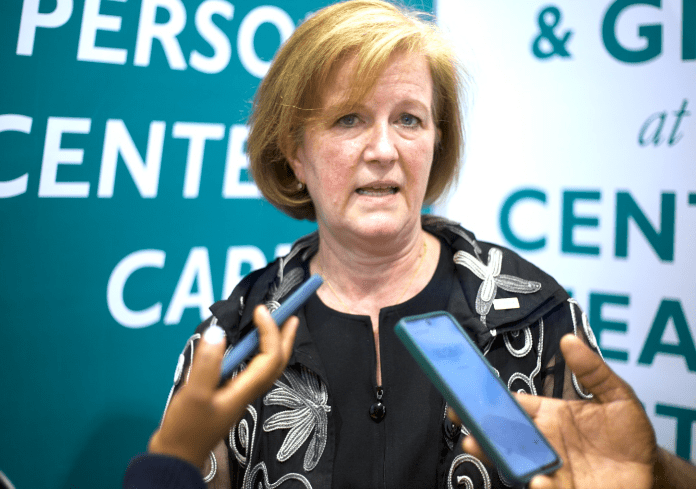
Marian Wentworth, president and CEO of Management Sciences for Health (MSH), introduces a new project aimed at strengthening the Rwandan health system for better delivery of all essential medicines. In a press conference, she says that the HPV vaccine is safe and has been around since 2006. This story is written by Mugenzi Napoleon of Amahumbezi media house. Read more.
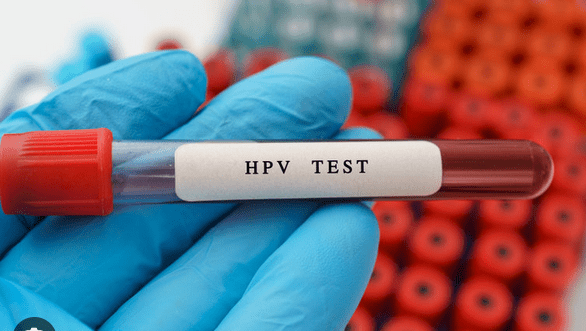
At a press conference held during the Women Deliver in Rwanda in July 2023, Marian Wentworth, president and CEO of Management Sciences for Health (MSH) addresses concerns about new vaccines and says it is important to evaluate these against real threats to children’s health. Story by Theodore Ntarindwa. Read more.
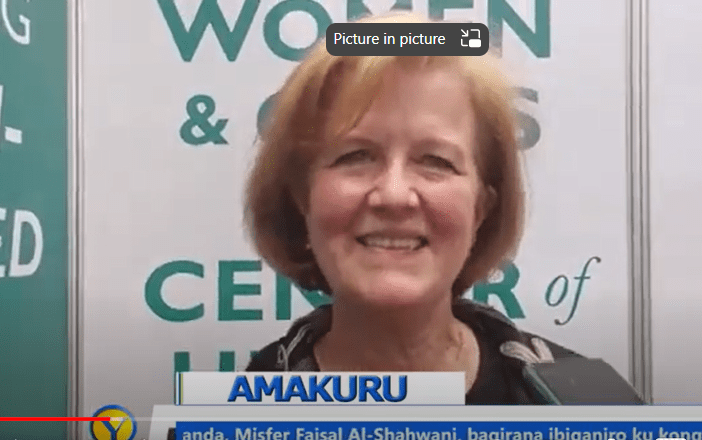
Yongwe TV picks up the press conference with Marian Wentworth, president and CEO of Management Sciences for Health (MSH) during the Women Deliver conference in Kigali, Rwanda. Once again, there is emphasis on the need to strengthen health systems for vaccine delivery and improving health outcomes. Watch original news broadcast.